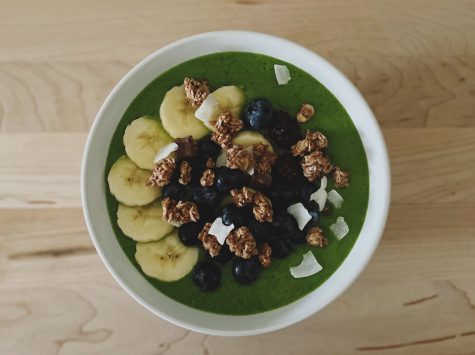5 ways to make your grocery shopping more sustainable

It’s that time of the year when everyone is making resolutions and setting intentions for the New Year. I don’t know about you, but I have had a hard time getting excited about making changes after all the change 2020 threw our way.
I have been thinking a lot about the little things, like daily habits that are easy to forget are actual choices. Specifically, I have been thinking about my groceries and how I can modify my shopping trips and online orders to be a little bit better for the people that grow the food and for the environment. When I landed on this as my New Year’s resolution, it became easier to get excited about making change.
This list could be so much longer, but in the interest of keeping it simple and being gentle in this time of tremendous change, I am sticking with five elements to making grocery shopping more sustainable.
Eat local & seasonal

Whether it is signing up for a Community Supported Agriculture (CSA) share, growing your own food, going to the farmer’s market or supporting small local businesses — eating in-season and local food is a great way to support your community in a consistent and sustainable way. Bonus: by eating seasonally, you can combat that work-from-home-food-is-boring-malaise by challenging yourself to cook something different.
Pick organic
Since I started working at Fairtrade, I have learned that growing products organically and getting the certification can be really challenging. It’s not as simple as just choosing to switch or having the funds; there are certain environments that are just better at supporting organic growing! That being said, this year, I am aiming to prioritize the Dirty Dozen and eventually expand out from there.
Remember the Fairtrade Four

Not everything can be grown locally! Goods like bananas, chocolate and coffee are all grown in other countries and imported to the US. Looking for the Fairtrade Mark will ensure that you are purchasing products that meet our rigorous social, economic and environmental standards. The list of things that can be Fairtrade certified is long — but as you dip your toe into this world we recommend you start by prioritizing the Fairtrade Four.
Bonus: Fairtrade also bans hazardous chemicals and genetically modified seeds and supports farmers that are interested in converting to organic farming — so this is another way to advance tip 2 as well!
Reduce your food waste
Even if you aren’t ready for composting — there are so many things that can be done to reduce food waste from planning your meals to using all of your food (think carrot greens, onion skins and veggie ends) to storing products better to actually eating leftovers.
Get to know your local recycling restrictions & adapt
I was surprised to learn what my local government recycles and — more importantly — doesn’t recycle. It varies from city to city and county to county, so one easy thing you can do is to learn what you can recycle and avoid buying products with non-recyclable packaging. I sat down, wrote the items that can be recycled and posted them in my kitchen so I don’t forget and thought through products to start buying differently. I also put reusable bags (like this awesome Fairtrade certified one!) in convenient locations so I don’t accidentally forget them on the way to the store.
Keep learning
There is so much information on sustainability out there and new recommendations are coming out constantly — from podcasts on climate change to documentaries on the food industry to zero waste influencers. We even have a newsletter to keep you motivated on your sustainability journey! Know that sustainability is an ever-evolving effort, so leaning into like-minded communities and getting to know the experts are good ways to weave this into your daily life.
Remember, as the blogger Wholefully shared recently, “Progress, not perfection!” It’s about considering what matters to you and slowly working towards a lifestyle that aligns more and more with your values.
Topics
We’re in this together
Fairtrade America partners with brands on the journey to certification and beyond. We can help with everything from finding a certified supply chain to marketing your newly certified product.
Get in Touch





